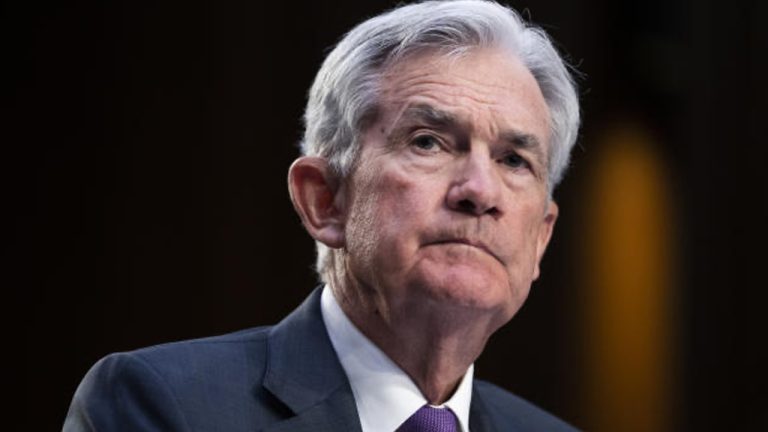
Following the fallout over the past two weeks in the U.S. banking industry, the Federal Reserve raised the federal funds rate by 25 basis points (bps) on Wednesday, citing the need for the inflation rate to return to 2% over the long run.
Fed Raises Rate Despite Calamity in the U.S. Banking Sector
It’s been a rough two weeks for the U.S. economy after the fall of Silvergate Bank, Silicon Valley Bank, and Signature Bank. After these bank failures took place, the Federal Reserve announced the creation of the Bank Term Funding Program (BTFP) and announced that uninsured depositors of Signature Bank and Silicon Valley would be made whole. After the turmoil in the banking industry, some experts suspected the Fed would not raise the benchmark rate this month.
On Wednesday at 2 p.m. Eastern Standard Time, the Federal Open Market Committee (FOMC) revealed that it would raise the rate by 25bps. “The committee seeks to achieve maximum employment and inflation at the rate of 2 percent over the longer run,” the FOMC said. “In support of these goals, the committee decided to raise the target range for the federal funds rate to 4-3/4 to 5 percent. The committee will closely monitor incoming information and assess the implications for monetary policy.”
In addition, the Fed published the central bank’s “Summary of Economic Projections,” which suggests the inflation rate can reach 2.1% by 2025 and 2% over the longer run. By 2025, the FOMC projections see the federal funds rate reduced down to 3.1%. Following the FOMC’s statement and projections report, equity markets jumped higher on the news, with three out of four of the U.S. benchmark indices in the green.
Crypto assets dropped after the small increase from the Fed, with bitcoin (BTC) nearing the $29K range at $28,700 at 2:15 p.m. Eastern Standard Time on Wednesday. But by 2:45 p.m., BTC had quickly dropped down to the $27,876 per unit range. At present, BTC’s USD value is hovering just above the $28K zone.
While cryptos had a mixed reaction to the Fed news, precious metals held strong. Both gold and silver jumped on the Fed hike, rising 1.6% to 2.5% higher against the greenback. Overall, the FOMC statement noted that recent indicators have shown “modest growth in spending and production.”
Further, the Fed says that while “job gains have picked up in recent months and are running at a robust pace [and] the unemployment rate has remained low, inflation remains elevated.”
After the FOMC press statement, Fed chair Jerome Powell insisted the U.S. banking system “is sound and resilient with strong capital and liquidity.” Powell added, “we think our monetary policy tool works, and we think … our rate hikes were well telegraphed to the markets, and many banks have managed to handle them.”
What do you think the Fed’s decision to raise interest rates means for the U.S. economy? Share your thoughts about this subject in the comments section below.
#News, #AssetPurchases, #Bitcoin, #BondYields, #CentralBank, #EconomicAnalysis, #EconomicData, #EconomicGrowth, #EconomicIndicators, #EconomicOutlook, #EconomicRecovery, #Economy, #Fed, #FedHike, #FederalReserve, #FinancialMarkets, #FOMC, #FOMCStatement, #Gold, #Greenback, #Inflation, #InflationRate, #InterestRates, #JeromePowell, #MarketVolatility, #MonetaryPolicy, #MonetaryStimulus, #Production, #QuantitativeEasing, #RateHikes, #Silver, #Spending, #StockMarket, #UnemploymentRate